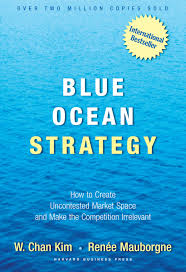Preparation Or Action?
A few months ago I read this book, “The Wealthy Speaker,” by Jane Atkinson. It’s a guide to becoming a motivational speaker, and she goes into such things as how to prepare a media kit, how to get in touch with speaking agencies, and really all of the parts of being a speaker.
One thing she talks about is the “Ready, Aim, Fire” method of performance. Essentially she says there should be three steps to doing anything: Ready, which is preparation, Aim, which is figuring out how to implement what you’ve prepared, and Fire, which is the implementation of what you have been working on.
It brings up an interesting question that has been floating around a few of my posts recently: how do you decide which is better, preparation or action? Both are helpful, of course, but how do you know when to take what you’ve prepared and get it out to people?
It’s more complicated than it may seem. Preparation allows you to produce the best content, product, or service you can. The more time you spend preparing, the better and better you and your project will become. The problem is that I just called it a “project,” because that’s all it is in the preparation phase. And to make matters worse, at some point, the amount of time or effort you pour into something, the less and less value gets added per time spent. For example, if Apple had pushed the iPhone 6 release back another 6 months, could they have made improvements? Of course, but in that time, the advances wouldn’t have been noteworthy…think about patches and bug fixes. Those are basically proof that they didn’t overspend time in preparation. You have to take action to make something more than project.
But of course, the reverse is also true. If you put a product or service out before it’s “ready,” it might be a total flop, and your name or your company’s name might get a bad reputation. Interestingly, I think the same is true for blog posts on here! Also noteworthy is the idea that you’ll learn as you go along. If you rush into something you’re not ready for, you will learn from the experience. I would argue that you learn more from making mistakes than you do from preparing for them.
So maybe there is a sweet spot…maybe there’s some way of knowing when you’re ready to move from the preparation phase to the action phase. How do you decide?
This post will also be featured on TheBulbCulture.wordpress.com. Be sure to head over there to see more great stuff, and contact Jacob to submit articles! He’s building a community of positive people to motivate each other and others.







